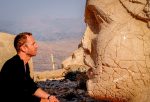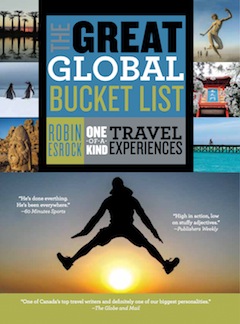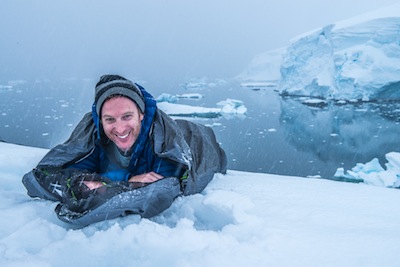In Rachel Kadish’s book The Weight of Ink (Mariner Books, 2017), the fictional Rabbi Moseh HaCoen Mendes, living in London, England, in the year 1657, writes a letter to Rabbi Manasseh ben Israel in Amsterdam (who was a real person), using the phrase “we lift our feet.”
In the time the novel was set, the Inquisition in Spain and Portugal was still raging but Holland had opened its doors to refugees. Ben Israel traveled to England to try and persuade Oliver Cromwell to allow Jews back into the country, from which they had been expelled in 1290. His argument was that Jews had to be present in every country if the Messiah was to arrive in 1666. While he didn’t manage to open up England to Jewish immigration, Cromwell did permit the 20 Jewish families then living in London in hiding, pretending to be Christians, to live openly as Jews. It proved in the end to be the thin edge of the wedge.
In this letter of consolation to ben Israel, Kadish has Mendes write the following passage: “Our life is a walk in the night, we know not how great the distance to the dawn that awaits us. And the path is strewn with stumbling blocks and our bodies are grown tyrannous with weeping, yet we lift our feet. We lift our feet.”
I was struck by the fatalism of Kadish’s rabbi. He was expressing a common outlook of religious people in the era – that our lives on earth are lived in a vale of tears, and that our hopes must centre on the beyond. And yet, the Jewish philosophy of life has always been that we must live the life we have here on earth to the fullest. Different from some other views, we deny that our lives should be lived solely in the hope of some future reward.
It is true that, come what may, our role is to “lift our feet” and keep on going. This is a staple of Jewish thinking. We keep on going. We keep on trying. We are the nation of try. If we surrender to the obstacles we face, we are beaten before we start. There is so much around all of us, whatever our background, that can be discouraging, but we can’t allow it to get us down.
Persistence in the pursuit of the goals we seek is a hallmark of Jewish life, and of successful people of every persuasion. We are not easily deterred. Our parents, like many others of immigrant origins, worked their whole lives to try and ensure that their children would get an education and a better start in their lives than was the case for them. Many Jews have gravitated to the research fields, where years of effort are required to achieve results.
Many large enterprises that mark the commercial landscape were once small businesses initiated by Jewish entrepreneurs. From banking, to groceries, from the shmatte (rag) business, to high fashion, it is difficult to find an area of economic activity where Jews have not shown their hand. Remember Bugsy Siegel and Murder Inc.?
Our seeming job in this life is to keep on keeping on. But many of us continue to search for a rationale for human existence. We know that the struggle for survival is in the nature of all living things. That is nature’s imperative. As thinking humans, though, many of us seek other reasons for our being, explanations beyond mere survival. We do not know how long our trip will be before we see the “dawn,” but, in the meantime, many of us are not satisfied that just reproducing ourselves is enough to justify the existence of the universe we are experiencing.
For Jews, the business of survival over the years has been an interminable task accompanied by incalculable losses. But, though few in number, we have survived and, where we have had the tools of defence, we have prevailed. Our religious say we are here to celebrate the glory of G-d, in whose image we have been created. Oh yes, and we are also supposed to provide a model so that all peoples will come to recognize His Oneness and supremacy. It has been a painful task, and not many of us are ready to own up to that particular role.
In these days, when religious speculation about life’s purposes is far from the central issue of our time, it is still important in the lives of millions of people. Even for those of us who are not among them, many of us would like to believe there is some purpose in our lives beyond mere existence.
Many people devote a good part of their thinking and their actions to improving the lives of others beyond their immediate circle, and they draw some sustenance and psychic reward from those efforts. Some people believe that certain issues are more important than even their own lives and, indeed, they stand ready to lay down their lives, if need be, in defence of these ideas.
Helping others and a willingness to die for our beliefs both point to things that we value beyond mere existence. Yes, we go on “lifting our feet,” but with principles that guide us until we reach the “dawn.”
Max Roytenberg is a Vancouver-based poet, writer and blogger. His book Hero in My Own Eyes: Tripping a Life Fantastic is available from Amazon and other online booksellers.
Editor’s Note: This article has been edited to make clear that Rabbi Moseh HaCoen Mendes is a fictional character.


 Esrock is one of the many writers participating in this year’s Cherie Smith JCC Jewish Book Festival, which runs Nov. 27-Dec. 1. The local author and journalist has not only been featured in the Jewish Independent before – for The Great Canadian Bucket List, among other things – but has written for the paper as well, so it was nice to catch up with him in anticipation of his Nov. 27, 5 p.m., presentation at the Jewish Community Centre of Greater Vancouver, appropriately called Travel Dreams.
Esrock is one of the many writers participating in this year’s Cherie Smith JCC Jewish Book Festival, which runs Nov. 27-Dec. 1. The local author and journalist has not only been featured in the Jewish Independent before – for The Great Canadian Bucket List, among other things – but has written for the paper as well, so it was nice to catch up with him in anticipation of his Nov. 27, 5 p.m., presentation at the Jewish Community Centre of Greater Vancouver, appropriately called Travel Dreams.